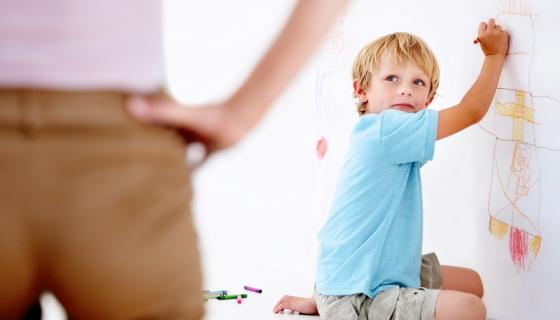
When is discipline inappropriate?
Children need to be guided towards appropriate behaviour in education and care settings. But when does discipline become inappropriate and even an offence under the National Law?
The safety, health and wellbeing of children attending education and care services is the priority of all approved providers. Therefore, it is important to be aware of your responsibilities and obligations when it comes to discipline and guiding children’s behaviour.
‘Discipline’ is not defined in the National Law or Regulations. However, it can be understood as action taken by adults towards children to stop or change inappropriate behaviour.
An approved provider, nominated supervisor, educator or family day care educator must ensure no child is subject to physical punishment or unreasonable discipline. This is an offence of s. 166 of the Education and Care Services National Law.
Approved providers must provide education and care in a way that encourages children to express themselves and their opinions. It should allow them to have experiences that develop self-resilience and self-esteem while also maintaining their dignity and rights.
Children should receive positive guidance and encouragement towards appropriate behaviour. This must consider a child’s family and cultural values, age, physical and intellectual development and abilities. (Refer to r. 155 of the National Regulations.)
Approved providers should ensure children have opportunities to interact and develop respectful and positive relationships with each other and all staff members. (Refer to r. 156 of the National Regulations.)
During an assessment and rating visit, authorised officers may discuss what measures an approved provider has in place to ensure children are not subject to inappropriate discipline.
Some examples of inappropriate discipline:
- Hitting, pushing, slapping, pinching or biting
- Force feeding/depriving food or drink
- Unreasonable restraining
- Consistently moving a child to other spaces away from play areas
- Yelling, belittling or humiliating
- Dragging a child
- Verbally or physically threatening
- Excessive use of negative language such as ‘no’, ‘stop that!’, ‘don’t …, ‘you never …’
- Tormenting, making fun of or laughing about a child
- Using sarcastic or cruel humour
Education and care staff should regularly reflect on their practice by asking:
- What opportunities are children given to contribute to guidelines, rules, expectations and/or consequences for their own and others behaviours?
- How do your own beliefs and attitudes influence how children’s behaviour is guided?
- How can educators be supported when feeling overwhelmed or having difficulty coping with behaviours?
- How does the service work with families, professionals and support agencies to ensure guidance strategies uphold the rights and inclusion of each child?
Instances of inappropriate discipline should be challenged and reported. This includes notifying the Education Standards Board and the Child Abuse Report Line if necessary. In some instances, criminal investigations may be conducted after notifications or reports.
For more information:
- Inappropriate discipline factsheet on ACECQA website

